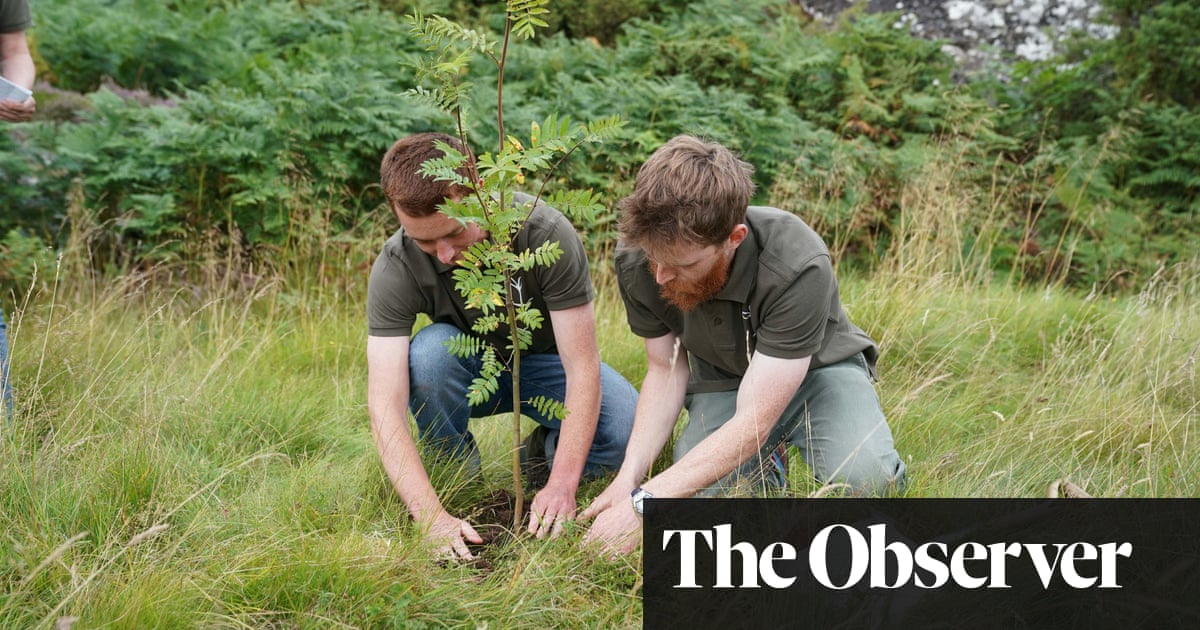World
The climate crisis and all the evil in the world drives me to despair

The question I am finding it ever more difficult to be in this nasty world. Everything that I cherish is being destroyed and there is nowhere to go to find solace. I’ve always loved nature – but when I go for a walk now, I see every ash tree dying, I hear the loss of birdsong, I see how few insects there are. When I read the news, I just cannot comprehend how cruel humans are able to be, racism, misogyny, religious hate, cruelty to animals… The list is endless.
I work in climate change and am having to pretend every day that there is still a chance we can prevent catastrophic climate change. I find it ever harder to be around people who don’t get just how bad things are. I don’t have kids and am single. I can’t talk to my family about it because they are rightwing, wealthy climate sceptics. They patronise me (despite the fact I’m nearly 60 and a chief executive).
If I look to the future, I imagine how difficult it is going to be when food supplies are more affected by environmental crisis. People fought over toilet rolls during Covid – multiply that by 100 and apply it to food.
I don’t want to face all this horribleness on my own. I’ve had lots of chances at relationships, but don’t want fear of the future to be the basis of one. In the meantime, I am trying to keep a lid on it, trying to dissociate my feelings, pretending all the bad stuff isn’t happening. When what I really want to do is scream my head off at everyone. Planet Earth is so beautiful, so incredible, I cry with the pain of what we are doing to it and to each other. How am I supposed to remain feeling in this fucked up world?
Philippa’s answer In his novel Candide, or Optimism, first published in 1759, Voltaire tells us of a young man who experiences a great deal of hardship and suffering. Using Candide’s experiences, Voltaire critiques the overly optimistic philosophy of the time. Like Candide, you too speak of a world marred by destruction and cruelty, and you are not mistaken. Although the forms of absurdity may change, the essence remains: human folly and suffering.
Candide’s master is Pangloss who argues that “All is for the best in the best of all possible worlds,” of which Voltaire takes a dim view. You, like Candide, are not comforted by this hollow optimism. The death of nature, the cruelty of men, increasingly extreme weather, these are not trifles to be dismissed with the wave of a philosophical hand.
I cannot offer you the false balm of easy answers. What I can offer, however, is this: the world has ever been thus. The great and the small, all have trampled on one another in their greed, ignorance and pursuit of power. In the end, Voltaire decided, we are left with but one solution: to cultivate our own garden.
I do not mean this literally, though your love of nature might lend itself well to such a task. I mean, rather, that you must focus on what is within your power. The world, with all its evils, is vast and terrible, but there is a corner of it that you can tend, that you can preserve with your heart and your mind.
The despair you feel because of the dying of the ash trees and the lessening of birdsong, the dwindling number of insects, these are the signs of your capacity to love the world. Do not deny that love. Let it be the fire that drives you to act, not the burden that crushes you. Yes, we face a calamitous future, but does that not make our efforts, however small, even more necessary?
As for the cruelty of men and your mention in your longer letter of your horror at the likes of Trump, well, what is a tyrant but a grotesque clown, a farcical reflection of humanity’s darker nature? He, like all despots, will pass. The earth will continue, wounded perhaps, but enduring.
As well as Pangloss the optimist, there is another character in the novel, Martin. He surrenders to despair, just like you are doing at the moment. I do not offer you Pangloss’s optimism but, and this is the important bit, do not surrender to despair like Martin the pessimist does. Martin’s pessimism stems from his life experiences. He has suffered greatly, which reinforces his belief that life is dominated by suffering rather than joy. Instead, I urge you, like Candide, to find your own way, to act where you can and to care deeply for those who share your values. The world will continue to be absurd, but you, with all your passion, your intellect, and your sorrow, can still make your corner of it more bearable.
What if you sought a relationship not out of fear, but out of a desire for shared strength in facing the future? When you meet others who share your values and concerns, those relationships can become sources of resilience. In this world, we must cultivate our garden. And if we all do that, the gardens might add up to make a difference.
Recommended reading Candide, or Optimism by Voltaire
Every week Philippa Perry addresses a personal problem sent in by a reader. If you would like advice from Philippa, please send your problem to askphilippa@guardian.co.uk. Submissions are subject to our terms and conditions










